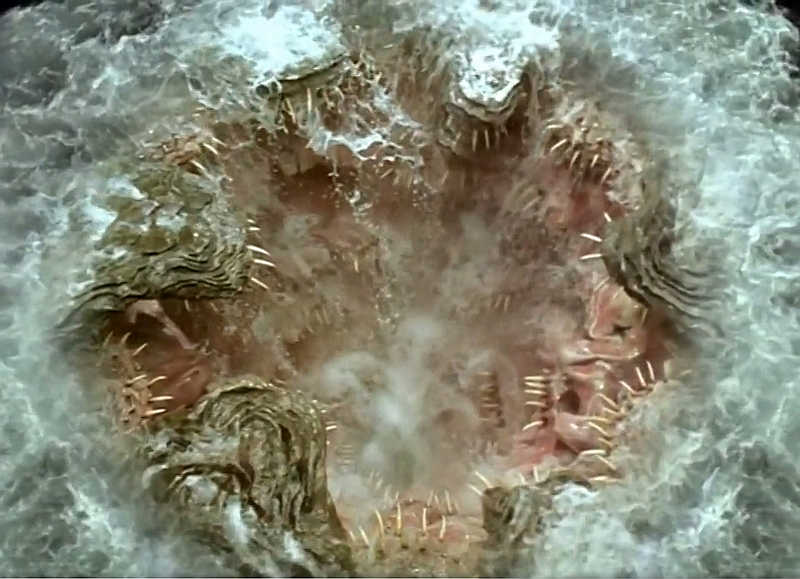The Greek myth of Scylla and Charybdis gave rise to the saying ‘between a rock and a hard place,’ and relates to choosing between ‘two evils.’
The narrow strait of Messina between Italy and Sicily was home to these two monsters. On one side of the strait Scylla lived under the sea, in a cliff. Every time a ship passed by, she would lash out at it, capturing the men on board in each of her six heads, and devouring them. Living in a cave opposite her was Charybdis, a monster with a huge mouth and fish-like arms and legs. Three times a day, she would swallow large amounts of seawater and then throw it back out after a few hours. This swallowing and spewing of water created massive whirlpools, that engulfed passing ships. Navigating the strait without loss of life was considered impossible and the Greek hero Odysseus, was hailed as the only sailor to have survived the journey.
I face Scylla and Charybdis in the telling/not telling of my story. To tell is to risk being devoured, discredited and disbelieved to not tell is to drown in the depths of oblivion. And does it make a difference to anyone but you?
I have always regarded truth-tellers as brave, because there are no rewards for the whistleblower except knowing that maybe you have made a difference. And that is a big maybe. If everyone speaks out like the women in the Metoo movement does that make a difference? Will sexual violence against women cease because there is such outrage at the scale of it that no man will dare violate another woman. Is knowing you are not alone in being a victim a ‘comfort’ or a nightmare? How could this happen to thousands? millions? of women.
How did the attempted genocide of indigenous cultures in countries like Australia, the United States and Brazil take place? Admittedly many non-indigenous people in those countries were not aware of the extent and murderous intent of government sanctioned acts, but if they were, would they have demanded that they cease? Would treaties be enacted, land rights adhered to and human rights violations stop immediately? I’m doubtful, as here in Australia even today we gaol children as young as ten years old, a disproportionate number being indigenous children, and we authorise the indeterminate incarceration of refugee children in offshore detention camps, both acts in violation of Human Rights. These criminal commissions are sanctioned by the Australian government and the people of Australia voted for successive governments who have carried out these acts.
We can ask how could the Holocaust have taken place when so many countries knew the anti-semitic tenets of National Socialism in the decade before the Nazi’s began their quest for world domination? Why didn’t democratic governments speak out against the rise of Nazism?
What these acts all have in common is the sense of entitlement of the oppressors to enact their violence against those they consider less than human, and that can be anyone who does not fit into the category of powerful human being in a given community/society. Their actions often have the implicit consent of those in power and additionally can be internalized by the victims themselves. i.e. they blame themselves or normalize the violence of the perpetrators.
How can my story assist in bringing justice to the world? The best way for me to navigate the strait of Messina is to embrace the story of Truth and Parable. Here naked Truth is shunned whenever he appears, so instead, adopts the guise of Parable and dressed in his colourful clothes is subsequently welcomed wherever he goes.
I tell folktales because they embody the values and lessons I want to share with my listeners, and when I write, my characters reflect the courage, vulnerability and experiences I want to share with my readers. Naturally I use the storyteller’s tools to fabricate, elaborate and promulgate. My story, whatever story I tell or write, is about me, what I believe, or don’t believe, not necessarily my experiences. (NB: I have never been a wolf, a police officer or a thirteen year old boy).
Photo: Charybdis, stolen from the internet.
